The year 2023 has been a splendid one in terms of new and admirable films and series. The programs of the Berlin, Cannes, and Venice Film Festivals have produced memorable editions. In the following selection, which could even have been extended with a few more, I have gathered together films that have shown the courage to push the boundaries of the medium and have done so with excellent artistic results. The directors on the list have questioned the human condition and the behaviors that portray it, with an uncomfortable and revealing gaze. Our history, the world we have built with our weaknesses and the courage to admit it, are reflected in these films that appeal to our senses and convictions. The longing for a world we no longer recognize, love as salvation, rebellion against convention, or the nooks and crannies in which to hide and continue pretending, run through this list, which is headed by Poor Creatures, but which the rest could occupy in any order.
Poor Things (Yorgos Lanthimos, 2023)
Yorgos Lanthimos presented us at the 80th Venice Film Festival with a gem that combines a superb use of visual resources and a powerful, well-told story —based on Alasdair Gray‘s novel of the same title (1992) and scripted by Toni McNamara (The Favourite, 2018)— with no lack of provocation, never gratuitous and always stimulating, as well as an approach to the question of gender that couldn’t be more original and effective. With an aesthetic inspired by steampunk and an alternation of black and white and color, the director of The Lobster (2015) has composed a film as identifiable with his creative universe as his previous ones, but he has taken a step forward by delving, into other much-loved themes, into the complexity of social dynamics, assumed statuses and the value of rebellion.
For the second time, Yorgos Lanthimos directs a period drama that does not ignore social issues, class, and family, but above all the question of gender. A portentous Emma Stone (co-producer of Poor Things) carries all the weight of the film and its progression on her character, with a fascinating charm, capable of turning the most audacious retorts into undeniable truisms. Read more.
The Zone of Interest (Jonathan Glazer, 2023)
The director of Under the Skin (2013) has taken ten years to present us with a new feature film, but that wait tastes like glory as we admire every minute of this film that freely adapts the novel of the same name by Martin Amis. Winner of the FIPRESCI and Grand Prix at the last Cannes Film Festival, The Zone of Interest takes place for the most part behind the wall of a concentration camp, whose presence is sensed through disturbing sounds and the presence of inmates working in the commandant’s house, under the supervision of his wife. It is a challenge to write about The Zone of Interest and not use the word “banality”, but the director does not need to remind us of it. That kind of evil pervades the film permanently, filtering through the orders carried out, the arriviste attitude that Höss’s mother-in-law comes to express, the attachment to a new status quo in which everything is an advantage for those who do not ask questions or, if they do, can answer them with the scruples of a mercenary.
The director of Sexy Beast has resorted to a monumental off-camera to shake us from top to bottom, with the use of an excellent sound design – which does not allow us to ignore even for a moment what is hidden behind the wall – as well as the overwhelming soundtrack by Mica Levi (Under the Skin, 2013). Sandra Hüller, proclaimed Best Actress by the European Film Academy, absolutely deserved the acting prize that Cannes denied her. Read more.
Do Not Expect Too Much From the End of the World (Radu Jude, 2023)
Radu Jude could teach aliens a lot about our planet. Through his defiant provocation and his unprejudiced, effective, and groundbreaking stylistic choices, the Romanian director directs a bizarre satire that reveals the cynicism of a world entangled in its lies, in a working nightmare of precariousness and cynicism. Angela (Ilinca Manolache in her first starring role) is a production assistant who drives around Bucharest in her small car, contacting accident victims to play themselves in a commercial for an Austrian security company, whose marketing director is played by Nina Hoss. The film, winner at the Gijon Film Festival and Romania’s representative in the Best Foreign Film category at the upcoming Oscars, sweeps us along in a whirlwind of action and talk. Angela’s verbosity, interviewing and convincing potential actors, is amplified by her other, opposing self, a misogynistic, Putin-admiring TikTok character.
The collage is completed with inserts from the Romanian film Angela Moves On (Angela merge mai departe, Lucian Bratu, 1981), about a taxi driver (Dorina Lazar) who, in the communist era, has multiple adventures traveling through Bucharest by day and night, as well as having her actors (Lazar and László Miske) forty years later, playing the parents of one of the accident victims. For Radu Jude, winner of the Berlin Bear in 2021 with Bad Lick Bunging or Loony Porn, the limits of cinema are those of his expression, which combines the most contemporary media to convey a bitter and hilarious fresco of reality, punctuated with jokes, anecdotes, and digressions. A game of mirrors and contrasts, with two Angelas and two worlds that overlap in post-communism.
Anatomy of a Fall (Anatomie d’une chute, Justine Triet, 2023)
Justine Triet won the Palme d’Or at the Cannes Film Festival with her fourth feature film, which also won five European Academy Awards, including Best Actress for the talented Sandra Hüller. This legal thriller, about the dubiously accidental death of Samuel, the protagonist’s husband, dissects an emotional corpse through the relationships between couples. In a particular exploration of the implicit components of their marriage, the different personalities of the two and the wife’s behavior, always questioned, under suspicion, Triet drives the plot of Anatomy of a Fall with enormous intensity, trusting the lion’s share to the substantial work of Hüller, with whom he already collaborated in Sibyl (2019).
In her particular Suspicion, the director of The Battle of Solferino plunges her scalpel into Daniel, Sandra and Samuel’s partially blind son, and his disturbing revelation, in a psychological game in which the monstrous and the legitimate. Appearances and orthodoxy collide with prejudice, without us feeling manipulated by unfortunate twists and turns, thankfully absent from a script written by Triet with Arthur Harari (Sibyl, The Goldman Process).
Fallen Leaves (Aki Kaurismäki, 2023)
Marc Muñoz writes the review of Kaurismäki’s latest film, winner of the Grand Jury Prize at the Cannes Film Festival: “The Finnish director dives into the silent recesses of a love that is difficult to find (more due to accidents and unfortunate impertinences of chance than to the will of the participants), through a lonely woman who has just been fired from a factory and an alcoholic man who has not yet found stability in the workplace, let alone emotionally. A simple plot that acts as a lever to be coated with the numerous attributes that define his cinema.
This tale of accidental love, or a romance of devoid chance, takes place in those non-places that define the filmmaker’s film universe. His characters are seen in desolate, unsheltered spaces. They walk, with their spirits at rock bottom, under hieratic and inexpressive poses and demeanors, in short, carrying the burden of unbearable loneliness, through interiors that instead of tempering those spirits worsen them with a fauna that underpins that generalized coldness”.
Rimini (Ulrich Seidl, 2022)
Conceived as a diptych alongside Sparta (2022), Rimini shares its characters, a family that no one would want to take home, with a pedophile brother and a ragamuffin brother, raised by a Nazi. This time, the protagonist is Richie Bravo (Michael Thomas), a melodic schlager singer in the doldrums, immersed in a habitat of sordidness and desolation, masterfully described by Ulrich Seidl and Veronika Franz. Nothing is more depressing than a place of fun, beach, and holidays, out of season, that frozen, grey Rimini where Richie cheats, singing in dreary hotel lounges for German tourists, seducing his elderly fans for a fee, renting out his kitschy mansion to fans and selling off what he has left. Seidl also has us accompany him back to Austria to visit his father, who lives in an old people’s home to show us the remnants of Nazism, in a torturous excursion that lasts the entire film. An unexpected event in the life of the pot-bellied singer —reminiscent of Gerard Depardieu who was dying his highlights in Chanson d’amour (Xavier Giannoli, 2006)— will make him confront his values and lifestyle, settling an outstanding debt, in a brilliantly resolved plot twist.
Rimini makes us uncomfortable to the point of exasperation but glues us to the seat in an inversely proportional measure, even if it makes us want to tear our eyes out in the face of so much shabbiness, some kind of satisfaction keeps us hypnotically attentive to a character who exudes anything but humanity, dressed in his wifebeater, under a voluminous sealskin coat.
Evil Does Not Exist (Aku wa sonzai shinai, Ryûsuke Hamaguchi, 2023)
Hamaguchi directed an impressive double bill in 2021, The Wheel of Fortune and Fantasy and Drive My Car, two hits that put him in the orbit of the directorial Olympus and showered him with awards. It was with this expectation that Evil Does Not Exist arrived at the 80th Venice Film Festival, proving that a film in which nothing seems to happen, under the wintry nature of a Japanese forest, is a time bomb that can blow everything away. In a small village not far from Tokyo, Takumi lives peacefully with his daughter Ana, until the arrival of a corporation that intends to build a glamping site, threatening the ecosystem and the water supply. Meetings between the two parties follow one after the other, seemingly ironing out differences and becoming closer on a personal level, moving beyond the greed represented by their envoys.
However, the parsimonious pace, the delicacy of its shots, and the lightness that seems to envelop the protagonists, who play or cook in harmony, while being able to live oblivious to the threat to their way of life, contain a powerful complexity. Nothing is idyllic, and the final drama will condense, with as much mastery as Hamaguchi has deployed throughout the film, a reflection whose rhetoric may surprise viewers with the same rotundity with which Takumi’s axe cuts his firewood.
The Beast (La bête, Bertrand Bonello, 2023)
If you could get rid of your emotions, would you? That is the starting point of The Beast, a fantasy that drags the couple Gabrielle (Léa Seydoux, in her third collaboration with the director) and Louis (Georges McKay) into a debate between intellect and emotion. Both find themselves at a point in their different lives, which are connected in one way or another in 1910, 2014, and, finally, 2044, when they are faced with the decision to “purify” their DNA and stop experiencing destabilizing emotions. The threat of disaster, the intuition that something horrible is going to happen, is a feeling that has distressed Gabrielle since her youth and prevents her from fully enjoying herself, from being happy, and from not worrying about the future.
The most romantic film premiered at the 80th Venice Film Festival is a dystopian and subjugating melodrama, timeless, with protagonists capable of endowing their characters with such warmth and authenticity that we can recognize their core beyond their changes over time and their different incarnations.
https://www.youtube.com/watch?v=eND0LhFvluI
Pictures of Ghosts (Retratos fantasmas, Kleber Mendonça Filho, 2023)
This magnificent documentary by the director of Dona Clara (2016) is a new (and sober) exercise in nostalgia, about a disappearing world. The city center has been modified in an unstoppable evolution that drags down lifestyles, and with them has also taken the cinemas of Recife (Brazil). Pictures of Ghosts show places and people, an extinct society, populated with its forms of socializing and its cultural and leisure habits, those cinemas, those streets, which the historical events marked with an imprint that the celluloid made imperishable. However, its transformation in recent decades has defied memory. In the film, movies, architecture, music, the document of an era, merge in a beautiful and penetrating reflection, not at all complacent, which reveals a deep love for filmed images, those of everyday home movies, and those of the immortal films that we have always seen on the big screen.
The film, narrated by Kleber Mendonça Filho himself, which has been selected to compete for Best Foreign Film at the 2024 Oscars for Brazil, is the best possible Cinema Paradiso, because it fuses with sufficient distance the intimate and the social, in a generational dimension. What takes shape as a mosaic of images, sensations, and memories, ends up as a melancholic testimonial essay, in three parts. It begins with Janet Leigh and her family’s visit to Recife in the 1960s and then focuses on the family flat in the Setúbal neighborhood, where the director spent his youth and later raised his children. Finally, it will show us the fate of the impressive movie theatres that, crowded in his childhood, today welcome a different kind of faithful within their walls.
https://www.youtube.com/watch?v=5yqMKoB-L30
A Brighter Tomorrow (ll sol dell’avvenire, Nani Moretti, 2023)
When Nani Moretti turns his gaze to his most personal universe, as in A Brighter Tomorrow, premiered at the 76th Cannes Film Festival, autofiction unfolds unabashedly. Although we may consider the result to be more or less accurate depending on the case, this exhibition of paranoia, fears, and staunch philias, not exempt from self-parody, projects an automatic force of attraction. Our Mediterranean Woody Allen has gone through political militancy, has been seduced by the intellectual romanticism of the boomers, and has found in cinema a reason not to abandon any battlefield or allow himself to be overcome by nostalgia.
The brilliant ending of A Brighter Tomorrow is a massive demonstration of the healing power of cinema, of the will to permanence, of creative force. The Soviet invasion of Hungary can be questioned and history rewritten, between buildings of truth or lies. Humor and irony prevent Moretti from becoming a Grinch or a preacher, he shows us that we will always have music and films and that the songs of Joe Dassin or the inevitable Franco Battiato have also made the world a better place.
Samsara (Lois Patiño, 2023)
Galician director Lois Patiño premiered the film Samsara at the 73rd Berlinale, in the Encounters section. The formal uniqueness and originality of his stamp, present in his previous films, reach their peak in this one. Form and content merge to convey an inspired proposal on reincarnation, with express reference to the Tibetan Book of the Dead. The narrative includes two stories linked by a very special cinematic hinge, whose function is so relevant that it becomes the film’s central attraction and justification in its own right. If cinema is composed of images and sound and it seems unimaginable to dissociate them, Patiño manages to convince us otherwise. The director specifically asks us to close our eyes for 15 minutes and let ourselves be carried away by the sound and the flashes of light that pierce our closed eyelids.
The stopped time, the silence, the meigas, ghosts and deceased whose presence takes on new forms, which were already present in Lúa Vermella, merge with a more evolved language within a structure that belongs to Buddhist culture, to convey a timeless meditation, with an inspiration that connects it to Apitchapong Weerasethakul. Read more.
Trenque Lauquen I y II (Laura Citarella, 2022-2023)
The two parts of Laura Citarella’s film, produced by El Pampero (El estudiante), have been co-written by the director with the protagonist, Laura Paredes. Viewed as one, its four hours are subjugating, the subtle mystery that slides the plot to its resolution permeates the film, beyond the intrigue. Each scene immerses us more and more and imperceptibly delves deeper into a fiction where secrets nestle and hide in the most obvious. The almost Borgesian narrative is lightly written, invisible, but overflowing in its telling. The director’s pace is never complacent or demanding, it is overwhelmingly natural.
A woman disappears and Citarella shows it to us with the evanescence of a Hitchcock character in the Pampas, making us doubt whether she existed or whether we only imagine her. Two men are in pursuit of a dedicated researcher who disappears during a mission in the countryside, the relationships become entangled, and at times the young woman’s attention is diverted. In the second part, a new nuance will emerge, a different point of view that will turn the story around. It is Laura’s voice that informs us, women take center stage, the magical element also appears, but above all, for the first time, we ask ourselves if she wants to be found.
Disco Boy (Giacomo Abbruzzese, 2023)
The Berlin Film Festival hosted the brilliant debut of the Italian director, who won the Silver Bear for Best Artistic Contribution for Hélène Louvart, one of the aspects that most seduced the audience and the jury. After ten years, four producers, and the participation of four countries, Abbruzzese managed to bring this particular story to the screen, starring Franz Rogowski, Christian Petzold‘s fetish actor and an essential part of recent European cinema.
Disco Boy is a post-colonial war adventure, a search for identity, a new beginning, and a voyage of discovery, but in the end it is a sensory journey so circular and infinite that we can only surrender to the journey without questioning its destination. All of this is conveyed through a fascinating visual and sound design. Disco Boy is a daring and personal film that reflects sensorially, without prejudice, on our old and new Europe from the questioning of its possibility, the burden of the past and its traces, with a charismatic protagonist despite himself. Read more.
Cerrar los ojos (Víctor Erice, 2023)
With his meagre, award-winning filmography and the unanimity with which he has been considered a cult filmmaker, the anticipation for his new film, which premiered at the Cannes Film Festival, was equally high. Close Your Eyes is a work that operates on several levels, whose common concern is a reflection on the passage of time, the recesses of memory, and the capacity to remember and record events and emotions, as well as the potential of images, animated or not, to reactivate or allow aging not to be a wasteland of unknown or forgotten stories or human capacities.
Closing the Eyes is a reflection, obviously inspired by the career of Víctor Erice —who wrote the script with Michel Gaztambide— on the difficulties of developing his projects, the dissatisfaction of unfinished works, not only including a metafiction with various resources, such as the incorporation of Ana Torrent (Ana), carrying out a vindication of a way of life that was threatened and stopped 30 years ago.
Last Summer (L’été dernier,Catherine Breillat, 2023)
Breillat, the first European director to show real sex in a fictional film, remade the Danish film Dronningen (May el-Toukhy, 2019) starring Trine Dyrholm. Last Summer, which premiered at the last Cannes Film Festival, however, went a step further than the original version. With her characteristic audacity, Breillat, at 75, has directed a disturbing and challenging film, which ignores the prevailing moral standards of today’s cinema and reveals the baseness of her protagonists. With no mercy for any of his characters, he depicts the pit of toxicity in which a bourgeois family, bound by its interests, sloshes.
Anne (excellent Léa Drucker) seduces her 17-year-old stepson, Théo (Samuel Kircher), a troubled teenager whom his mother has sent home to his father, Pierre (Olivier Rabourdin), with whom he has little contact. The presence of a new element in the family nucleus has a different impact on its members, but its influence on the stepmother will be irresistible, despite the inappropriateness of the relationship. Anne is a woman incapable of love or empathy, and when her place in the household machinery may be in jeopardy, she does not hesitate to make the decision that will perpetuate her status. Amorality reigns over honesty and the duty to protect the underage in this story where forbidden games are not condemned and guilt does not exist.

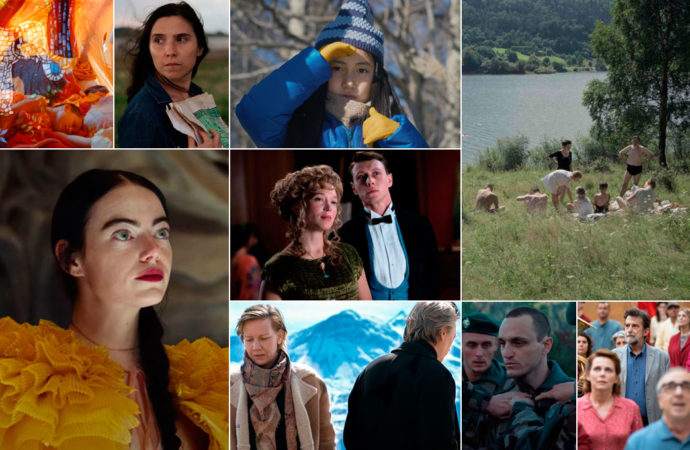

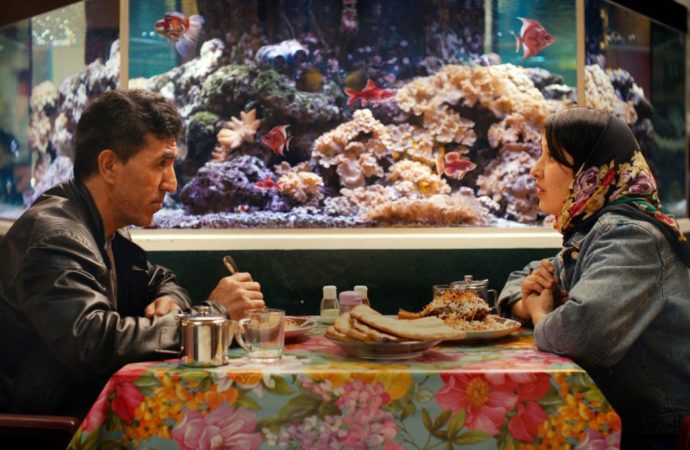

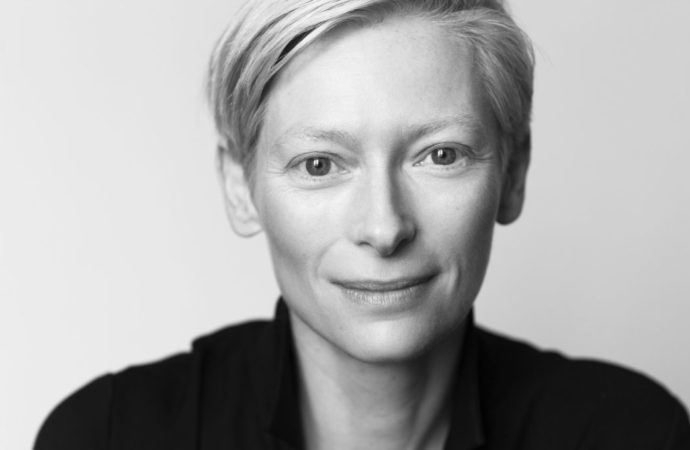
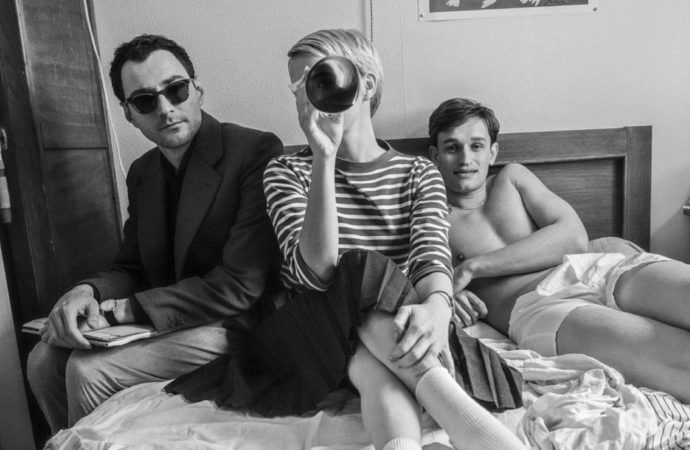
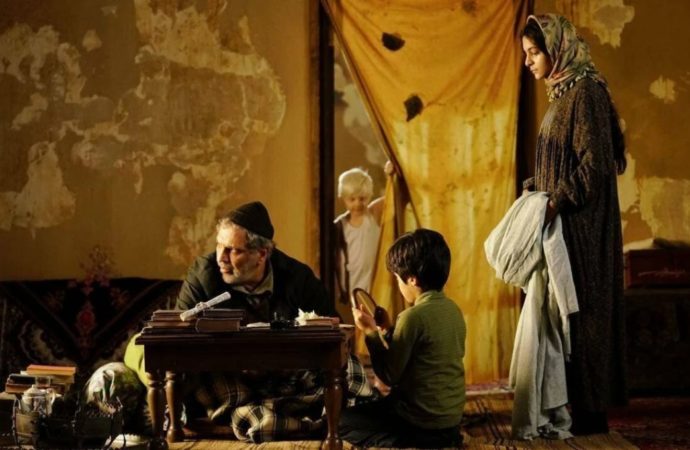
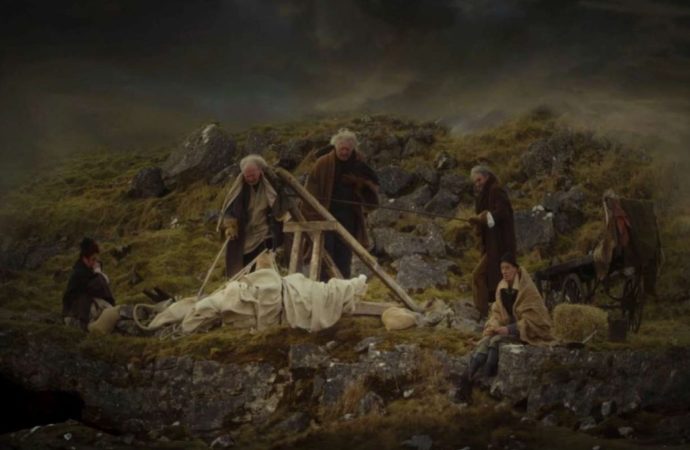
No one has posted any comments yet. Be the first person!